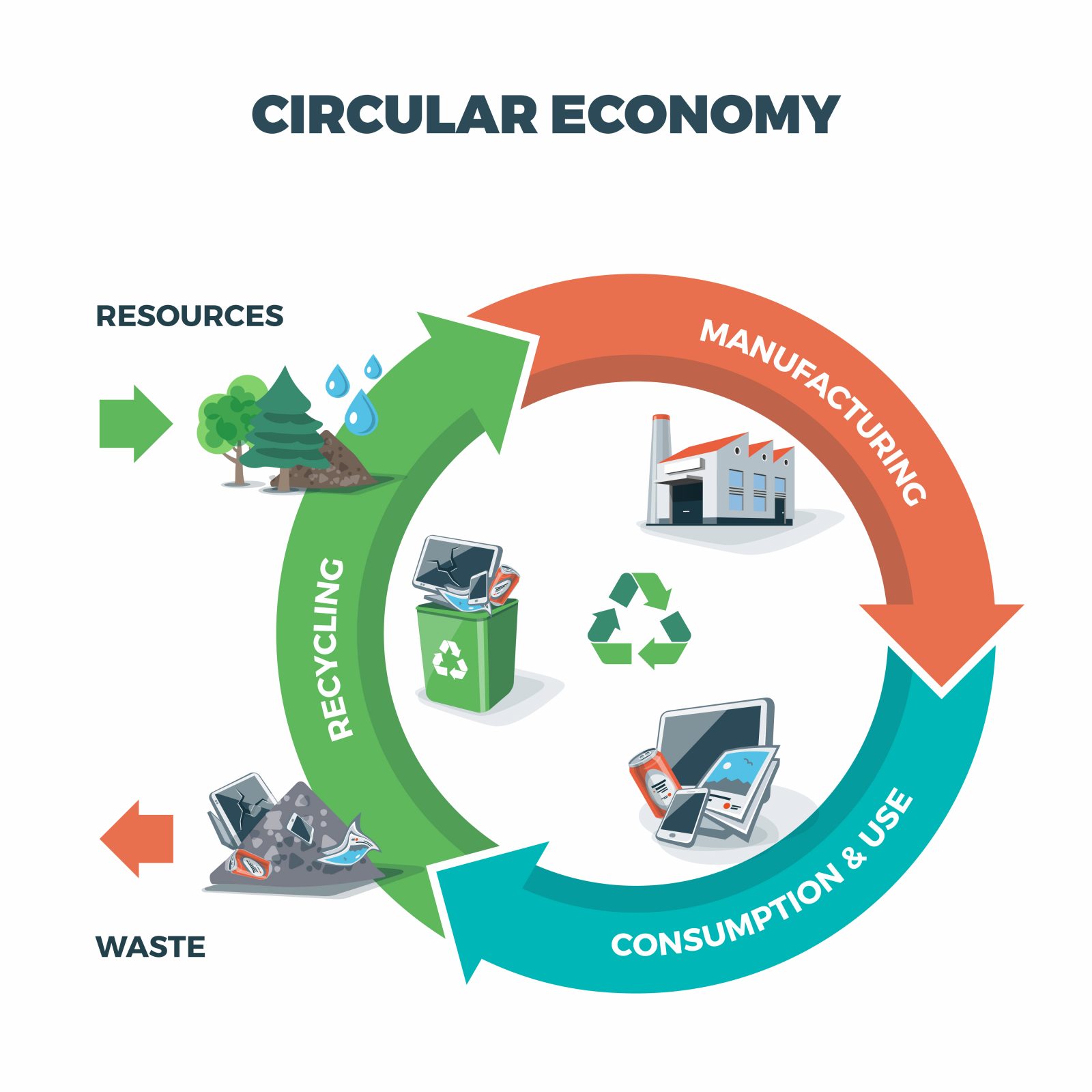The City of Cornwall is promoting a circular economy through out the month of October. Circular Economy Month is an initiative by the Circular Innovation Council, a resource organization, that helps municipalities share the social, environmental, and economic benefits of a circular economy.
What is a circular economy? A circular economy is when existing materials once sourced from natural resources are reused, recycled, and recovered to reduce waste.
How is a circular economy different from the current linear economy? Presently, producing, and consuming goods and services is a single-track process. In other words, we take materials from nature, make products with them, use these goods once or multiple times, then throw them away. This way of living is harmful to the environment because it involves extracting non-renewable resources unsustainably. The materials that could be recirculated are instead destined for landfill.
Why is this a problem? City populations are rising, which means more waste. Improper waste disposal can pollute land, water, and air that we need to survive. Landfill waste is a significant contributor to greenhouse gas emissions like carbon dioxide and methane. Greenhouse gases are the culprit for climate change and extreme weather events we are experiencing today.
Where does a circular economy fit into Cornwall? You might not realize that Cornwall has local business and community partners that practice circularity. For example, businesses that offer repair services or to buy second-hand are circular!
Each week in October, the City will feature a new theme of a circular economy:
Week 1 (October 1-9): An Introduction to a Circular Economy
Week 2 (October 10-16): The Environmental Benefits of a Circular Economy
Week 3 (October 17-23): Waste Reduction and Recycling in a Circular Economy
Week 4 (October 24-31): The Social and Economic Benefits of a Circular Economy
There will be educational social media content, opportunities to get involved. Follow the City of Cornwall on Facebook or the River Institute on Instagram to see what happens next.
Who can participate in circular economy month? Anyone can participate in a circular economy because it benefits all. Here are some advantages to being circular:
– Regenerates natural systems
– Mitigates climate change
– Supports local communities
– Saves money and create value
Join Cornwall as it embraces October as a Circular Economy Month to raise awareness for global challenges such as waste, pollution, biodiversity loss, and climate change.
For more information on Circular Economy Month: Circular Economy Month | Waste Reduction Week in Canada | Join us October 2022 (wrwcanada.com)




